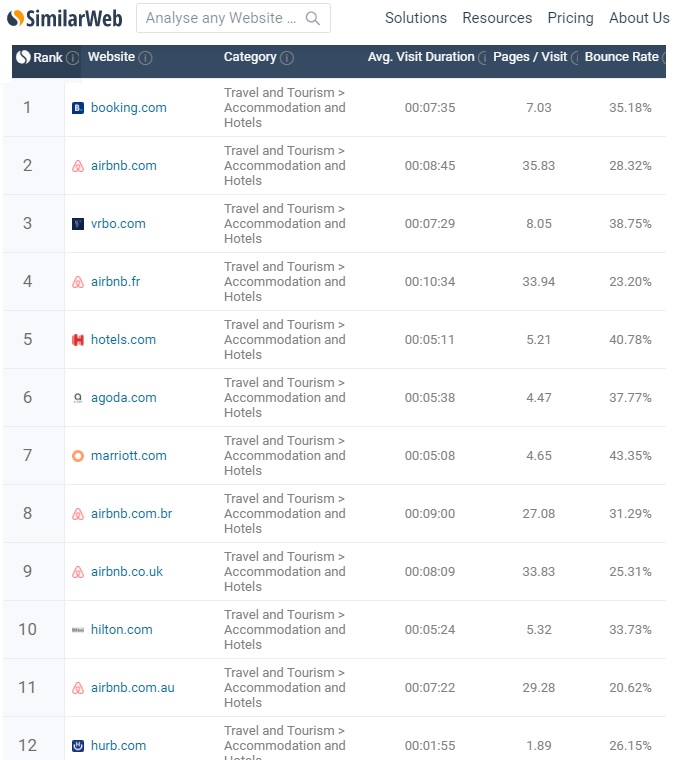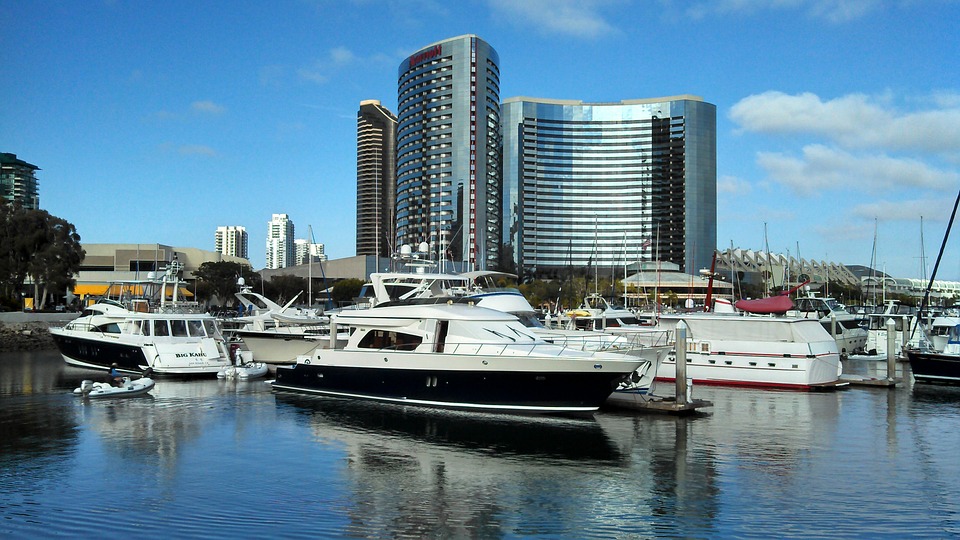Hotel SEO – Los Angeles San Diego Orlando Miami New York Boston
Hotel SEO Excellence
 The Corona Virus pandemic devastated the travel industry in 2021. From hotels to cruise ships to Airbnb rentals, and restaurants to airlines, companies have teetered on the verge of bankruptcy.
The Corona Virus pandemic devastated the travel industry in 2021. From hotels to cruise ships to Airbnb rentals, and restaurants to airlines, companies have teetered on the verge of bankruptcy.
And just in the nick of time perhaps is this spring’s huge wave of travel and hotel demand. In fact, yesterday (March 14) airlines saw the greatest number of airline passengers in one day since the pandemic began and Boeing just received a large new jet orders.
The question for you has a hotel marketing manager is how much of that burgeoning audience you would like to enjoy. People will be looking at travel differently as they arise from the 12 month prison at home.
There is a great opportunity for you now to carve out an exceptionally large share of this audience searching for hotels, flights, and experiences.
That travel experience which I’ll talk about below actually starts at their laptop or smartphone in searches for destinations, hotels, flights and travel experiences. The pandemic has created turbulence in the old order, making this year the best time to conduct hotel SEO.
Smaller Hotels Can Compete Smart and Aggressively
And while Bookings.com, VRBO, Expedia, Hotels.com, Trivago, Airbnb and major hotels are also well aware of the power of Hotel SEO and have big outreach via social media, smaller travel businesses might be shying away from organic traffic sources.
 The biggest travel sites enjoy tens of millions of visits per month. They get most of their traffic from Google and Bing. A good number of smaller hotels might not feel confident in their ability to compete.
The biggest travel sites enjoy tens of millions of visits per month. They get most of their traffic from Google and Bing. A good number of smaller hotels might not feel confident in their ability to compete.
Yet, large hotel chains have many constrictions and problems that come from corporate branding requirements. It makes them unable to flex and compete hard in SEO.
Instead, they “buy” their ranking power one way or another through ppc advertising, sponsorships, events, and their business partnerships. This big budget spending generates a large amount of free publicity, backlinks, and brand mentions.
It’s unlikely your hotel has this great budget, so you’ll need to be more strategic.
I’ve helped a major hotel chain doubled its yearly traffic from 1.2 million to 2.5 million, so there is potential via organic content marketing including hotel search engine optimization.
Ideally, what do Hotels Need?
- content creator who can develop interesting, engaging content
- visual content creator (e.g., travel photos, local cultural and leisure photos, and videos)
- search engine optimization consultant to provide keyword and topical research and strategy to rank well on Google and Bing
- PPC manager to optimize ad campaigns to reduce spend while growing the highest quality leads
- graphic web designer who can craft the website and downloadables into visually attractive pieces
- content strategist who can weave content experiences to engage visitors and generate leads/bookings
Chances are that most agencies won’t be able to ace this list of must have’s. Some agencies do specialize in travel, however it may result in conflicts of interest with other clients. Good talent is very hard to find, which is yet one more reason why small travel agencies, hotels, tour operators, and others give up on trying.
My client, a major hotel found me, and we worked some magic.
Attracting Big Audiences
Yes, gaining visibility and then attracting visitors in the thousands per day is the minimum goal. If you want those kinds of results, you’ll need a strategy. It may not look like much effort goes into search engine optimization, but successful companies always do a thorough audit of their capabilities, opportunities, value proposition and objectives.
Your copywritten content, photos, and videos all together create SEO assets — things that influence travel bloggers, travel business partners, and search engine ranking algorithms. Videos, pages, blog posts, downloadables, webinars, and other events are good examples. Align them strategically for a better impact. The power of focus.
Your Website Must be a Great Experience
Your Facebook page might be a good asset too, yet it provides a poor and undifferentiated user experience. It actually reduces your brand power which requires you to do more paid advertising to compensate.
The faster you get your customers to your site and making bookings, the better.

Today, it’s all about the customer journey, the experience they have while searching. That search may begin with “cheap hotel rooms” but with excellent search engine optimization and expert content strategy, the path that travel consumer takes can be managed. We an show them a better solution than cheapest hotel rooms, New York, or San Diego hotels.
SEO is just the beginning. Content strategy and content engagement pave the way to hotel bookings and revenue
How much Traffic can Hotel SEO deliver? A lot.
In fact, I doubled a major hotel’s traffic and made a big impact on their bottom line. This was traffic generated via Google, Yahoo, direct visits, and other website referrals. Adding a million new visits per year makes Hotel SEO a respected profession. I’d be delighted to perform SEO for your hotel brand.
I do love travel and hotels are recognized as convenient, safe, and comfortable accommodations. Your SEO specialist should have a passion for destinations. My personal favorites are Banff, San Diego, Costa Rica, Whistler BC, and Florida. Any many more locales await!
And while AirBnB has put a good deal of pressure on the hotel industry, hotels have innovated. Years ago, hotel marketing communications were formal and narrow thinking. Today they’ve opened up to more personal and creative interactions with travellers looking for fun, helpful and engaging content. There are alternate paths on the hotel customer journey. These can help smaller hotel chains more competitive.
What do You Need to Win your Google Rankings?
- bold, confident keyword selection (head and longtail both)
- clever, engaging content constructed as a whole on your website
- high performing EPIC level visual content
- high quality, sharable blogs, pdfs, videos, photos
- interesting, engaging blog posts using semantically relevant copy
- high quality travel-related stories
Good Content for Engaging Behavior
Align SEO and brilliant content strategy to create unbeatable high quality experience for your visitors and customers. Let’s get your Web presence optimized from top to bottom.
Search Engine Optimization Services | Silicon Valley SEO | Los Angeles SEO | Boston SEO Company | Boston Real Estate Marketing | SEO Audits | Real Estate Websites | Real Estate Marketing Packages

